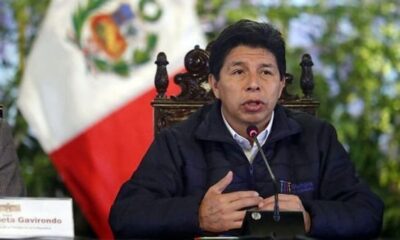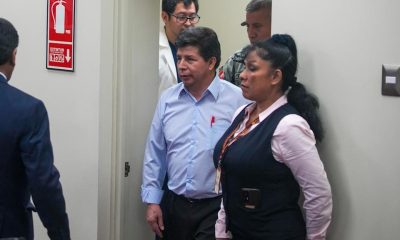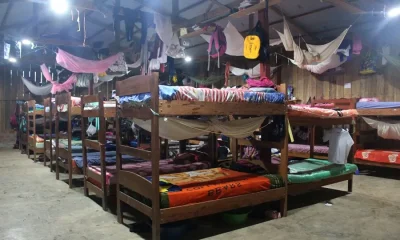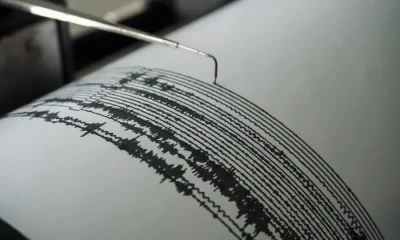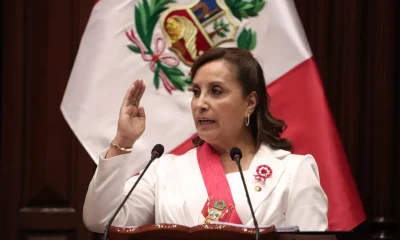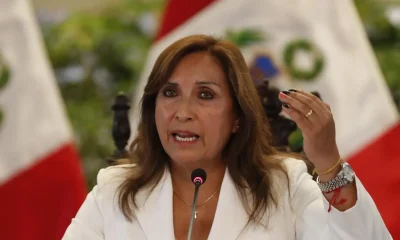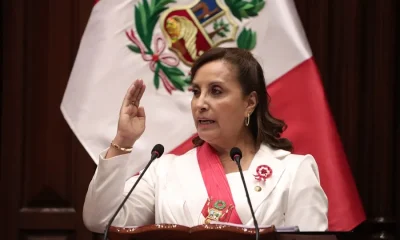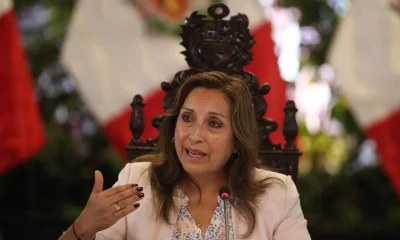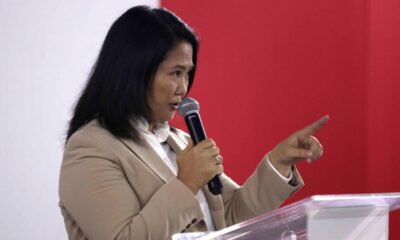International
As Peru unrest ebbs, stranded tourists make way to safety
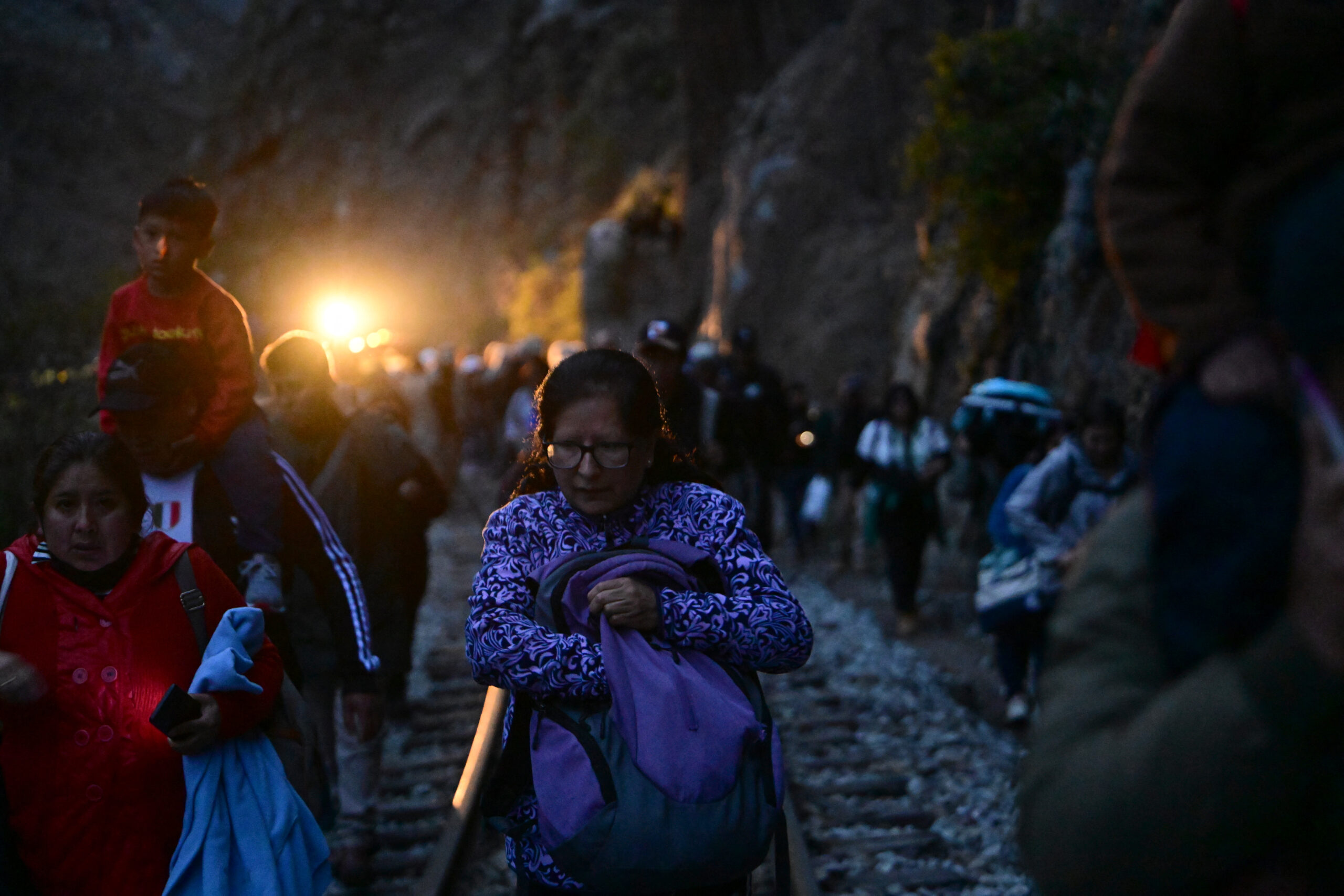
| By AFP | Carlos Mandujano and Moisés Ávila |
Protests dwindled in intensity in Peru on Saturday and thousands of tourists trapped in the interior boarded planes to escape unrest as President Dina Boluarte again vowed that she would not step down.
Some 4,500 tourists, many of them European and North American, rushed to the international airport in Cusco to catch flights after being stranded much of the week by simmering political unrest.
“By Sunday at the latest, all the stranded tourists will leave,” Tourism and Commerce Minister Luis Fernando Helguero told the Andina state news agency.
The state human rights ombudsman reported 70 roadblocks around the South American nation, and the toll from the unrest rose to 19 dead and 569 injured.
But the minister of defense and the head of the armed forces both said protests were diminishing in intensity.
“We have gradually been recovering normality along the roads, at the airports, in the cities. Normality is returning but it is not yet achieved,” said General Manuel Gomez de la Torre, head of the military joint chiefs of staff.
Defense Minister Alberto Otarola cautioned that “organized violent acts” were aimed at damaging airports, highways, natural gas pipelines and hydroelectric installations.
“The trend is downward. But we remain on alert. The situation of violence hasn’t passed and the crisis goes on,” Otarola said.
‘What is solved by my resignation?’
Boluarte, the lawyer who assumed the reins of the country December 7 after leftist President Pedro Castillo tried to dissolve Congress and rule by decree, only to be ousted and thrown in jail, again insisted that she would not bend to protesters and step down.
“What is solved by my resignation? We will be here, firmly, until Congress determines to bring forward the elections,” Boluarte told Peruvians.
On Friday, House speaker Jose Williams said the vote on the election schedule could be revisited during a forthcoming session of Congress.
In her televised address, Boluarte expressed regret for the protests that swelled across the country and the deaths, most of which came in clashes with security forces including the military, under a state of emergency.
If armed troops were on the streets, “it has been to take care of and protect” Peru’s citizens, Boluarte said, adding that the protests were “overflowing” with violent elements that were coordinated and not spontaneous.
“These groups did not emerge overnight. They had tactically organized to block roads,” she said.
Protesters are calling for the release of Castillo, the resignation of Boluarte and closure of Congress, and immediate general elections.
Initially detained for seven days, Castillo was on Thursday ordered to spend 18 months in pretrial detention.
The leftist former schoolteacher stands accused of rebellion and conspiracy, and could be jailed for up to 10 years if found guilty, according to public prosecutor Alcides Diaz.
Boluarte declared a 30-day nationwide state of emergency and said she wanted to bring forward elections as a way to calm the uproar, but Friday’s measure fell short of passage in Congress.
Tourists in limbo
Several airports have been closed, but the international terminal in Cusco, the gateway city to the jewel of Peruvian tourism, the Inca citadel of Machu Picchu, managed to reopen on Friday, allowing for some 4,500 stranded tourists to begin boarding outbound flights.
Cusco’s airport is the third largest in Peru, and armed soldiers were seen Saturday standing guard outside.
Protesters tried to storm the terminal on Monday, and the airport remained closed for nearly four days.
Good news also came Saturday to some 200 tourists stranded in a town in the deep valley below Machu Picchu. They were able to board a train and travel as far as Piscacucho, where a boulder blocked the railway.
The tourists, many from Europe and North America, then walked two kilometers (a little more than a mile) to where waiting vehicles took them on to Cusco, AFP learned.
Rail service to Machu Picchu had been suspended since Tuesday.
‘Criminal investigation’ needed
Some of the greatest bloodshed of the week occurred Thursday at the airport in Ayacucho, where soldiers protecting the terminal shot at protesters.
Soldiers “found themselves surrounded with the masses closing in,” rights ombudsman Eliana Revollar told AFP.
The army says its soldiers would have first raised their weapons and then fired into the air, but Revollar said shots were fired at protesters and an investigation is warranted.
International
Claudia Sheinbaum: Operation Against ‘El Mencho’ Was Based on Pending Arrest Warrants

Mexico’s President Claudia Sheinbaum on Wednesday rejected claims that the military operation that resulted in the death of Nemesio Oseguera Cervantes, known as “El Mencho,” leader of the Jalisco New Generation Cartel (CJNG), was carried out under pressure from the United States government.
Sheinbaum explained that the deployment of federal forces was aimed at executing outstanding arrest warrants against Oseguera Cervantes, who was considered one of the most wanted criminals in both Mexico and the United States.
“That was not the objective (to ease pressure from the United States). It is very important, and I want to repeat it. This individual had an arrest warrant, or several,” Sheinbaum said, referring to the operation conducted on February 22.
According to the president, the initial goal was to capture Oseguera Cervantes, but military forces responded after coming under attack during the intervention.
“The operation was to detain him. The problem is that they were attacked — the Secretariat of National Defense — and they responded at that moment,” she said.
The president insisted that the action was not carried out in response to external demands, although she acknowledged intelligence cooperation with the United States.
“It was not done in any way because of pressure from the United States, not at all. Of course, there was intelligence information from the United States that was used specifically,” she concluded.
International
Spain Denies Any Agreement to Cooperate with U.S. Military in Iran Operations
International
White House Says Spain Agrees to Cooperate with U.S. Military After Trump Threatens Trade Embargo

White House Press Secretary Karoline Leavitt said Wednesday that Spain has agreed “in recent hours” to cooperate with the U.S. military, following President Donald Trump’s threat to impose a trade embargo on Madrid.
Trump had warned of potential commercial measures after Spain reportedly refused to allow the Pentagon to use facilities at Spanish military bases for operations related to Iran.
“With respect to Spain, I think you heard the president’s message yesterday loud and clear, and I understand that in recent hours they have agreed to cooperate with the United States military,” Leavitt said during a press briefing.
She added that the U.S. military is currently coordinating with its counterparts in Spain. However, the president expects broader support.
“The president expects that all of Europe, all of our European allies, of course, will cooperate in this important mission — not only for the United States, but also for Europe,” Leavitt said.
Her remarks came in response to questions about Spain’s position and its role as a U.S. ally amid rising tensions surrounding operations involving Iran.
-

 International4 days ago
International4 days agoIran Reports 201 Dead, 747 Injured After U.S. and Israeli Strikes
-

 International3 days ago
International3 days agoBrazil’s Supreme Court Rejects Bolsonaro’s Bid for House Arrest
-

 International2 days ago
International2 days agoSpain’s Prime Minister to Address Nation Amid Trump’s Trade Threats
-

 International3 days ago
International3 days agoAnti-ICE Billboard Campaign Targets Immigration Spending in 31 U.S. Cities
-

 International4 days ago
International4 days agoPope Leo XIV Urges End to ‘Spiral of Violence’ in Middle East
-

 International1 day ago
International1 day agoWhite House Says Spain Agrees to Cooperate with U.S. Military After Trump Threatens Trade Embargo
-

 International3 days ago
International3 days agoTrump Warns of ‘Major Wave’ of Attacks as Iran Conflict Escalates
-

 International3 days ago
International3 days agoMexico Calls for Immediate Probe After National Dies in ICE Custody
-

 International2 days ago
International2 days agoNew York Announces First 2,000 Seats in Universal 2-K Program
-

 International1 day ago
International1 day agoSpain Denies Any Agreement to Cooperate with U.S. Military in Iran Operations
-

 Central America2 days ago
Central America2 days agoGuatemala’s Attorney General Fails in Bid for Top Court Seat Amid Corruption Allegations
-

 Central America1 day ago
Central America1 day agoNicaragua Held Responsible for Harassment of Opposition Prosecutor and His Family
-

 Central America3 days ago
Central America3 days agoPanama Canal Monitoring Trade as Middle East Conflict Disrupts Shipping
-

 International3 days ago
International3 days agoBolivia Orders Three Investigations Into Deadly Military Plane Crash
-

 International2 days ago
International2 days agoWarner Bros. Developing First ‘Game of Thrones’ Movie With ‘Andor’ Writer
-

 International1 day ago
International1 day agoClaudia Sheinbaum: Operation Against ‘El Mencho’ Was Based on Pending Arrest Warrants



























